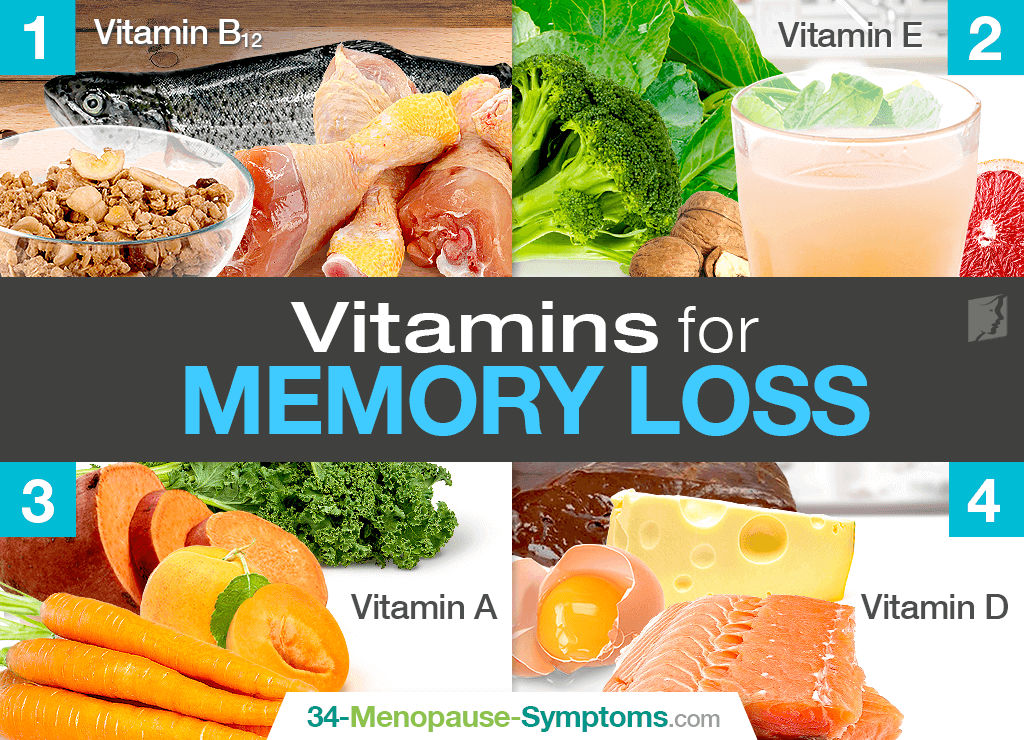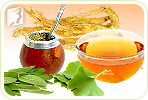Memory lapses can catch aging women off guard, wondering if their difficulties with remembering are temporary slips of mind or symptomatic of a more advanced health condition, like dementia. Therefore, before taking drastic measures, they may feel inclined to supplement with memory loss vitamins.
Continue reading to learn about some of the most common, research-backed vitamins for memory loss as well as what you can do to further boost cognitive abilities during menopause.
Vitamin B-12

Vitamin B-12 is renowned to sustain healthy red blood and nerve cells within the body. Although its deficiency can cause symptoms of memory loss, once memory loss has kicked in - as is the case with Alzheimer's, supplementation has actually not been proven to improve brain function. Accordingly, it is important to receive adequate amounts of the nutrient from a healthy diet rich in fish, poultry, and fortified options, like breakfast cereals, for preventative purposes.
Vitamin E

Vitamin E is an antioxidant that is essential for the formation of red blood cells. Recent studies have also discovered vitamin E (alpha tocopherol) to be a potential vitamin for memory loss for those with Alzheimer's disease. When compared to those receiving placebo pills, vitamin E was found to slow functional decline. Consider its supplementation through green leafy vegetables, like spinach and broccoli; nuts and seeds; and fortified foods, such as fruit juices and spreads.
Vitamin A

Vitamin A is made in the body from beta-carotene, an antioxidant acclaimed for its role in healthy vision. So, when supplementation of beta-carotene was performed to assess its short and long-term effects on memory, it was found that long-term use may provide cognitive benefits when compared to the placebo. However, further investigations need to be executed to verify its effectiveness. Find beta-carotene in carrots; sweet potatoes; fruits like cantaloupe and apricots; and green leafy vegetables, like spinach or kale.
Vitamin D

Although further research is necessary, this vitamin's deficiency is believed to have a connection with cognitive decline and dementia. It has been associated with an increased risk of cognitive impairment in adults aged 65 years and older within the United States with further studies proving its cognition enhancing abilities as well. The best source of vitamin D is sunlight, but it can also be found in the following foods: cheese, egg yolks, beef liver, fatty fish, and fortified products, like soy and cereals.
How Else Can I Boost My Memory?
Other nutrients and herbs praised for promoting optimal cognitive function include ginkgo biloba, omega 3 fatty acids, ginseng, curcumin, cocoa flavanols, and fish oil.
However, while memory loss vitamins, nutrients, and herbs may show positive effects on cognitive abilities, menopausal women who are having difficulties remembering and suffering from memory lapses would do well with resolving the underlying hormonal balance most likely at fault.
Natural memory lapse treatments start with instilling lifestyle changes - such as an optimized diet rich in foods containing memory loss vitamins, regular exercise, and healthy habits - alongside alternative medicine for improved results. Herbal phytoestrogenic supplements, like black cohosh or red clover, can help fill in the natural estrogen gap induced by the end of ovarian hormonal production. Or, hormone-balancing supplements, like Macafem, can work with the body to encourage its own hormone production, thus no longer necessitating the need for exogenous ones.
Sources
- AARP. (2018). Supplements for Brain Health? Retrieved December 18, 2018, from https://www.aarp.org/health/brain-health/info-2018/brain-supplements-memory-loss.html
- Dysken, M.W. et al. (2014). Effect of vitamin E and memantine on functional decline in Alzheimer disease: the TEAM-AD VA cooperative randomized trial. JAMA, 311(1), 33-44. doi: 10.1001/jama.2013.282834
- Gestuvo, M.K. & Hung, W.W. (2012). Common dietary supplements for cognitive health. Aging Health, 8(1), 89-97. doi: 10.2217/AHE.11.92
- Mayo Clinic. (2016). Vitamin B-12: Can it improve memory in Alzheimer's? retrieved December 18, 2018, from https://www.mayoclinic.org/diseases-conditions/alzheimers-disease/expert-answers/alzheimers/faq-20057895
- MedlinePlus. (2017). Vitamin E. Retrieved December 18, 2018, from https://medlineplus.gov/ency/article/002406.htm



